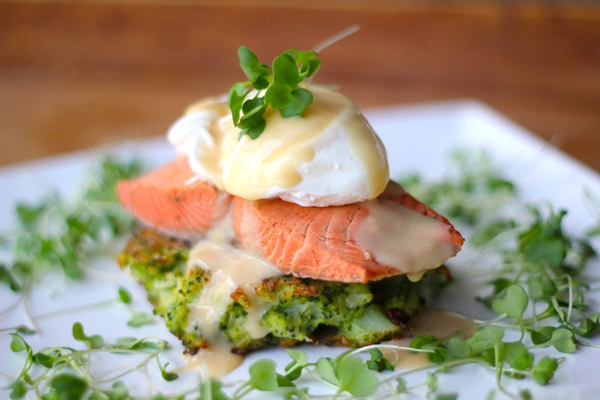Search on for salmon poachers in rural Yorkshire
 0 Comment(s)
0 Comment(s) Print
Print E-mail Xinhua, April 9, 2016
E-mail Xinhua, April 9, 2016
|
|
|
The Environment Agency (EA) announced Thursday it is clamping down on the illegal sales of wild salmon and sea trout by targeting restaurants, hotels, pubs and fish mongers in the Yorkshire. |
Poached wild salmon is a popular healthy option dish on the menus of many top restaurants in Britain.
But government officials are concerned that diners may unknowingly be munching their way through salmon that has been illegally caught by poachers.
The Environment Agency (EA) announced Thursday it is clamping down on the illegal sales of wild salmon and sea trout by targeting restaurants, hotels, pubs and fish mongers in the Yorkshire.
The northern county, famed for its Yorkshire Dales scenery, is being targeted because one of its best known rivers, the Esk, is a haven for salmon returning to the place where they were spawned after several years swimming in the ocean.
The EA says its fisheries enforcement officers are visiting food businesses to check coolers, freezers and fish storage facilities as well as giving advice on how to spot wild salmon and sea trout that have been caught illegally.
River bailiffs are also patrolling rivers and coastal areas, overtly and covertly, to target illegal fishing.
A number of illegal fishing nets have already been seized along the river bank.
A spokesman for the agency said: "Anyone caught illegally fishing or in possession of illegally-caught fish will face prosecution and a substantial fine. The enforcement campaign aims to protect wild salmon populations that are put at risk by illegal fishing."
The 45 km long river meanders through the valley of Eskdale, and at the port of Whitby becomes the only river to directly flow into the North Sea.
Famed for its clean and healthy waters, the Esk supports a wealth of wildlife, with salmon spawning right up through Eskdale. There are even a number of salmon leaps which attract visitors watching the fish on their journeys.
Next year sees the 30th anniversary of a law made to protect dangerously dwindling populations of salmon and sea trout in the Esk. It prevents fishing for salmon and sea trout along the stretch of the Esk.
At its peak, around 1,000 salmon were caught in the river ever year, but the numbers have fallen dramatically.
The EA's Paul Slater said: "Legitimate netsmen sell wild salmon and sea trout with an Environment Agency tag attached to the carcass. If this is not present, people may be handling illegally-caught fish and liable for prosecution.
"Salmon or sea trout caught by rod and line will not be tagged, because it is illegal to handle, buy or sell salmonids caught this way. Salmonids cannot be sold or bought if they are 'unclean' -- a term used to describe a fish that is about to spawn or has recently spawned," he added.







Go to Forum >>0 Comment(s)